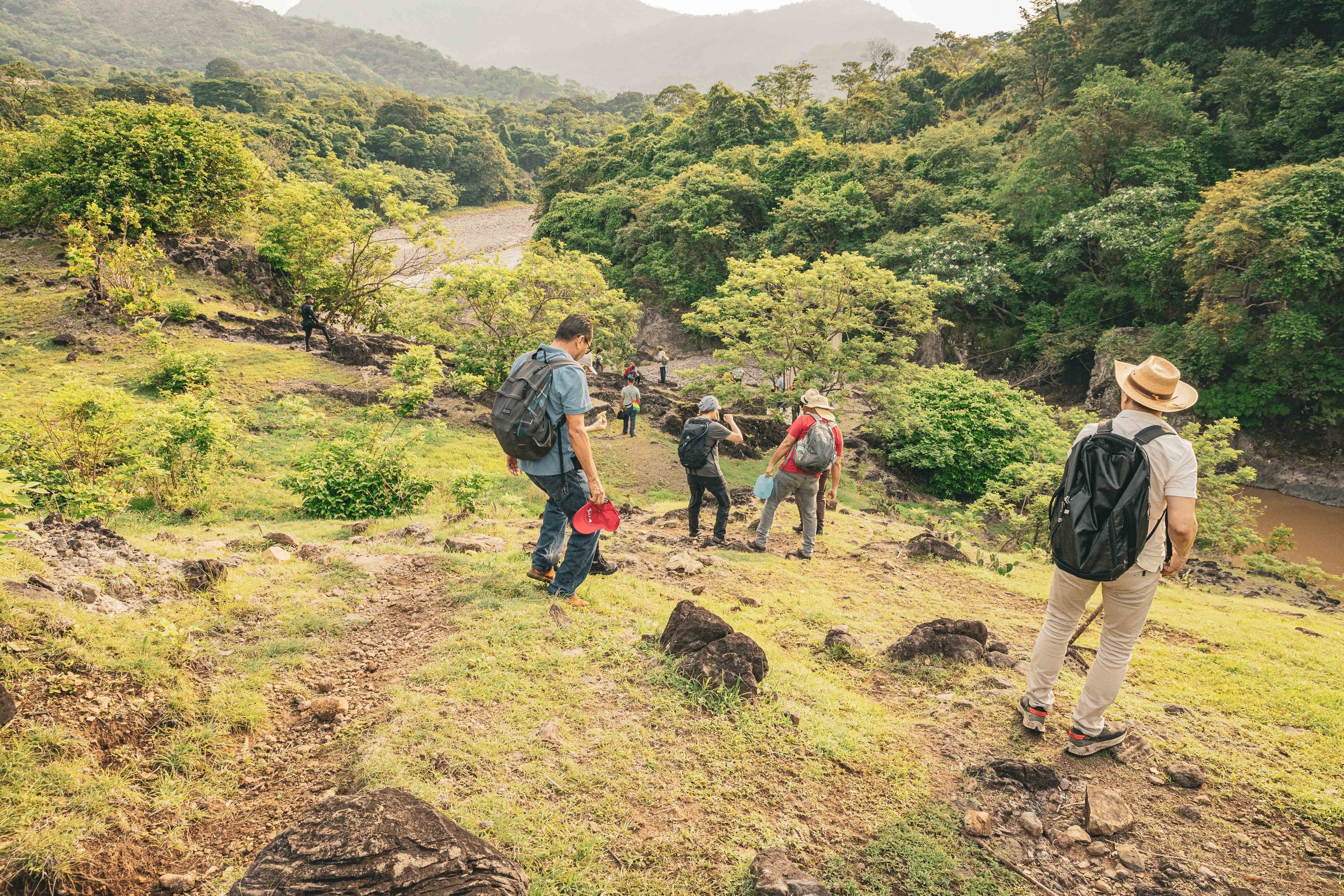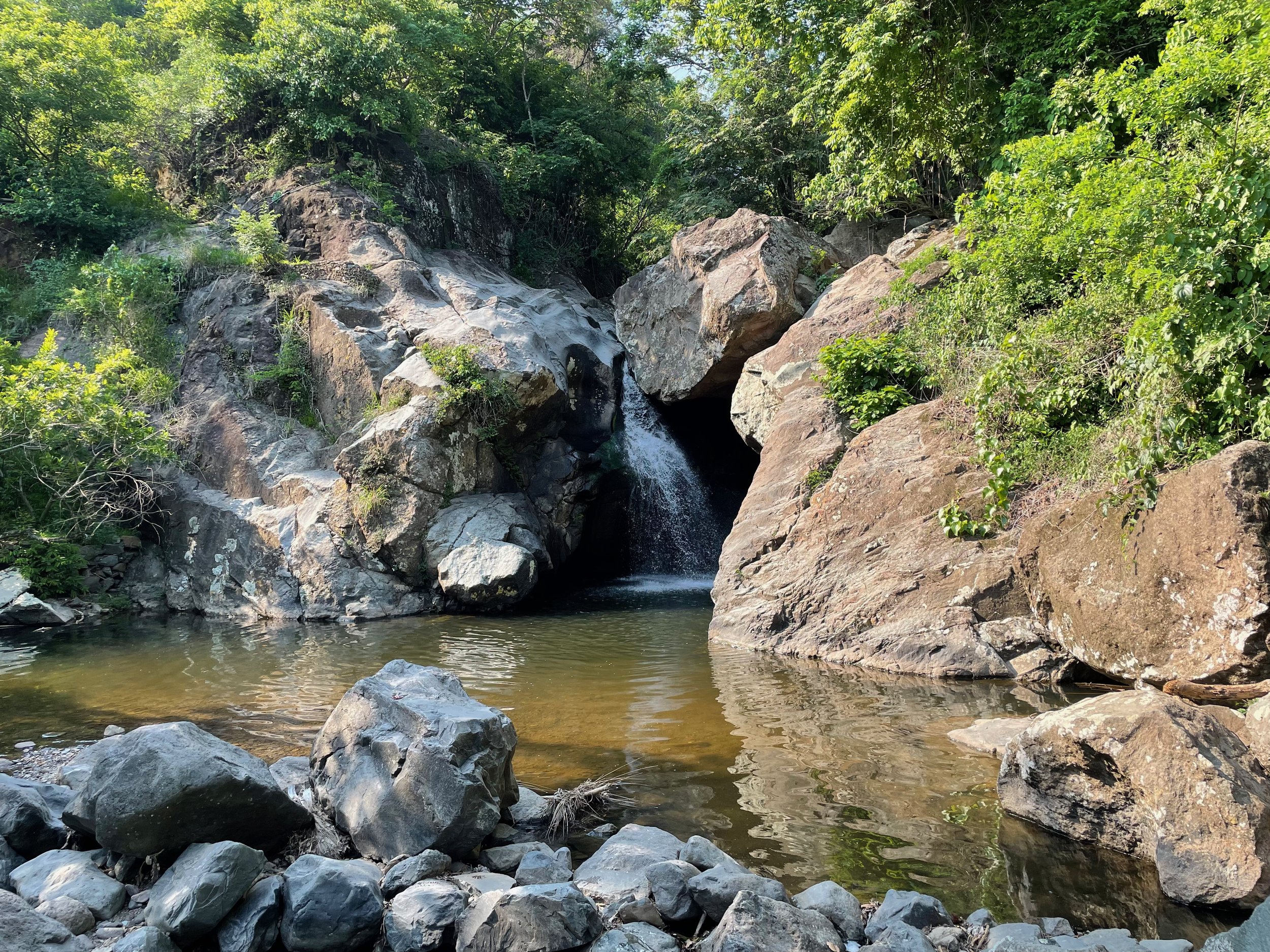Recovery of Traditional Knowledge
This collaborative project addresses the theme of memory through the exploration of local traditional knowledge in the communities of Chalatenango. Within the framework of the Surviving Memory in Postwar El Salvador initiative, this community-based research documents local traditional knowledge about plants and animals used to meet basic needs related to food and health, creating a space to explore both individual and collective memory.
The pilot project was the creation of a book, La rebúsqueda: historias de plantas y resiliencia en Chalatenango (MUPI 2024), aimed at identifying and describing the relationship established between the population of Chalatenango and nature at two different points in their history: during the civil war and in current times. Local research partners include the Asociación de Comunidades para el Desarrollo de Chalatenango [Association of Communities for the Development of Chalatenango, CCR] and Asociación Sumpul [Sumpul Association]. These organizations recognize that nature is crucial for the families and communities of Chalatenango because it is part of a unique history that binds many inhabitants together and provides resources that have allowed and continue to allow them to meet their basic needs for food and health.
The publication of La rebúsqueda was the result of collaborative work between academics and local leaders. The authors of the book, to varying degrees, participated in the study design, information gathering, and writing of different chapters. Upon completing this project, it is clear that for the population of Chalatenango, conserving memory related to the civil war and transmitting traditional knowledge and use of nature to new generations is crucial for strengthening their collective identity. The team is continuing to develop this research area based on the pilot project.
Researchers
Dr. Vladimir Pacheco Cueva is an associate professor at the School of Culture and Society at Aarhus University (Denmark). His academic research includes the socio-economic impacts and governance of non-renewable resource extraction in the Arctic and the Global South. Prior to his current position, Vladimir served as a researcher at the Foundation for Cooperation for Development, the Center for Social Responsibility in Mining, and the consulting firm WorleyParsons (Australia). Vladimir began his research career at the University of the South Pacific (USP) in Fiji, where he specialized in microfinance studies in Oceania.
Chiara Bresciani is an anthropologist, researcher, and doctoral candidate at Aarhus University (Denmark). She has worked in indigenous and rural areas in southern Mexico since 2011, researching topics of identity and indigenous worldview, tradition, resilience, and cultural change during political conflicts; she has also addressed the social impact of alcohol consumption.
Alain Carretero has transdisciplinary training and professional experience in biology and anthropology. Alain holds a master’s degree in ethnobiology from Aarhus University (Denmark) and has carried out projects in Bolivia and Denmark. Alain will contribute to the rescue and documentation of traditional knowledge and the use of wild native plants in communities in the department of Chalatenango. Additionally, he will identify native plants with potential for commercial use.





